- Home
- entertainment
- news
- 18 of the most notorious feuds between actors and directors
18 of the most notorious feuds between actors and directors
Gabbi Shaw

- These Hollywood feuds offer a glimpse into the sometimes-fraught world of entertainment.
- From George Clooney and David O. Russell to Katherine Heigl and Judd Apatow, stars can throw punches, literal and figurative, on and off their sets.
- Though some make up after spats, other Hollywood celebs never quite get over their friction.
It's no secret that Hollywood can be catty.
Making a film is a stressful experience, and tensions are bound to arise. Many times, the stress of filmmaking comes to a head between lead actors and their directors.
From name-calling to mind games, from hair-pulling all the way to fist-fighting, notorious actor/director feuds have been going on for decades.
Melina Glusac contributed to a previous version of this story.
Director Kevin Smith said that working with Bruce Willis on the film "Cop Out" was "soul-crushing."
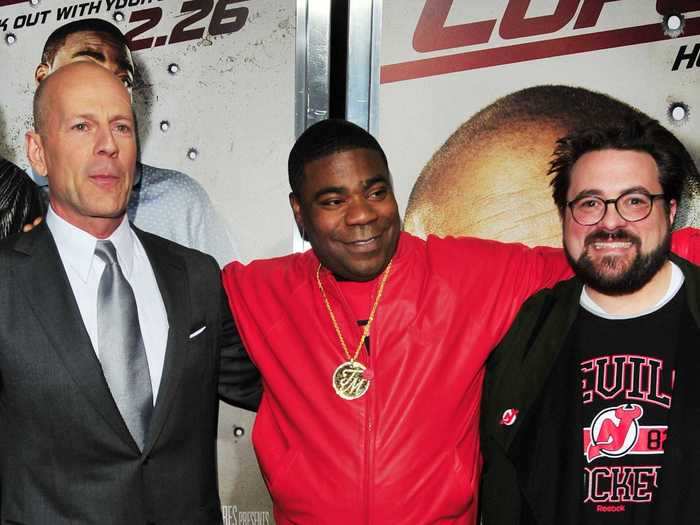
Smith discussed the making of the 2010 film on an episode of "WTF with Marc Maron," almost a year after its release. He told the comedian that one of the stars of the film wouldn't sit for a poster photo shoot — and once Maron pressed the director for a name, he let loose.
"Everyone knows who it is. Put it this way, remember the really funny guy in the movie? It ain't him. He's a f---ing dream. Tracy Morgan, I would lay down in traffic for. Were it not for Tracy, I might've killed myself or someone else in the making of that movie," Smith said. "It was difficult. I've never been involved in a situation like that where, one component is not in the box at all. It was f---in' soul crushing," he continued.
However, the two seem to have squashed their beef. Almost a decade later, Smith told a story on his podcast, "Fatman Beyond," about the action star texting him to ask for his address, as Willis had some pictures he wanted to send Smith. "Reach out to an old friend or to someone you never thought would be a friend again. You never know what bridges you can mend," said Smith.
Val Kilmer has had problems with many directors, including "Batman Forever" director Joel Schumacher.
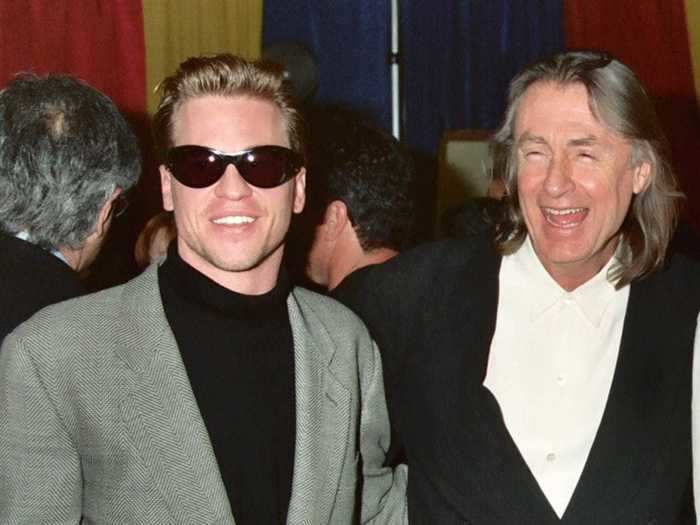
Schumacher told Entertainment Weekly that the two even "had a physical pushing match" on set. "He was badly behaved, he was rude and inappropriate. I was forced to tell him that this would not be tolerated for one more second. Then we had two weeks where he did not speak to me, but it was bliss," he continued. Kilmer was eventually replaced in the sequel by George Clooney.
Time has not healed this wound, though — in 2019, 24 years after the film, Shumacher doubled down on their beef. In an interview with Vulture, the 79-year-old called Kilmer "psychotic," though he did admit that he was a "fabulous Batman."
George Clooney and David O. Russell are said to have physically fought while filming "Three Kings."
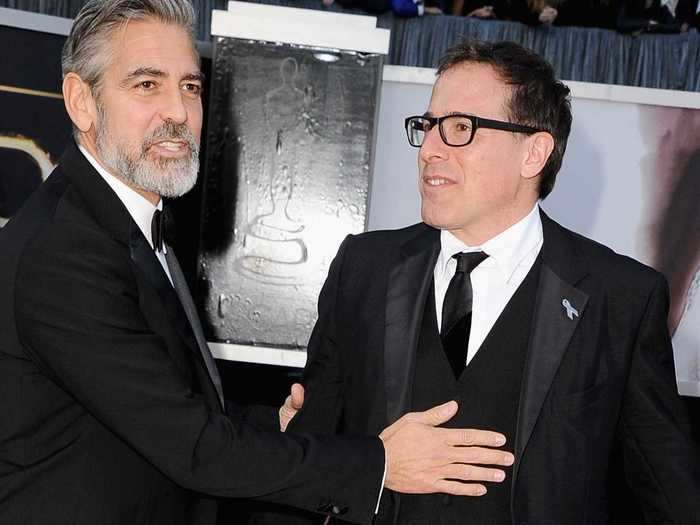
Mounting tensions on the set of 1999's "Three Kings" led to a physical fight between the film's star, George Clooney, and its director, David O. Russell.
According to one of the film's producers, Charles Roven, Clooney was tired from working on both "ER" and "Three Kings" simultaneously, and Russell was experiencing budget pressure from the studio. Reportedly, when Clooney saw Russell yelling at a crew member, it was the final straw. The two engaged in a "tussle."
In a 2000 interview with Playboy, Clooney said Russell's aggression was a widespread problem on set, and that the director also made the script supervisor cry, physically pushed an extra, and embarrassed a camera-car driver.
After reports about Harvey Weinstein came out in 2017, stories surfaced about Russell, with former co-workers accusing him of on-set abuse.
Roman Polanski allegedly yanked a hair straight out of Faye Dunaway's head on the set of "Chinatown."
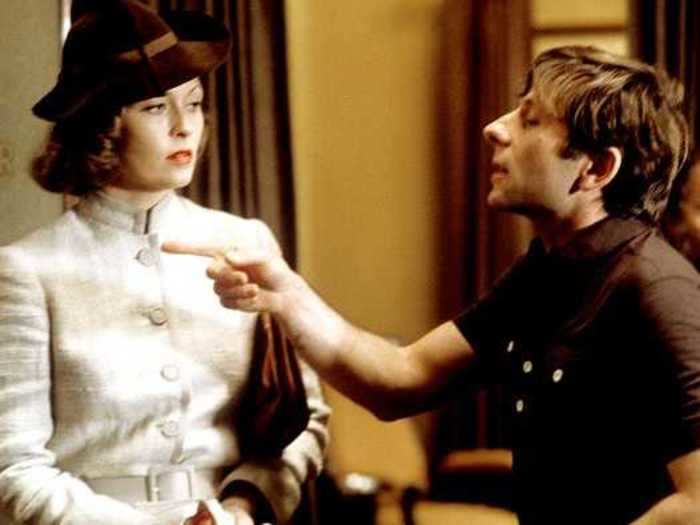
Actress Faye Dunaway and controversial director Roman Polanski apparently clashed on the set of 1975's "Chinatown."
At one point during filming, Polanski was upset by a stray piece of Dunaway's hair that was ruining his shot, so he walked up to Dunaway and yanked it out of her head. One urban legend says that Polanski's refusal to allow the actress bathroom breaks led to her throwing a cup of her own urine at the director.
Dunaway vehemently denies the urine incident, but has said, "The friction between Roman and me began from the start" of filming.
Director Henri-Georges Clouzot slipped Brigitte Bardot sleeping pills for a scene, and she had to get her stomach pumped.
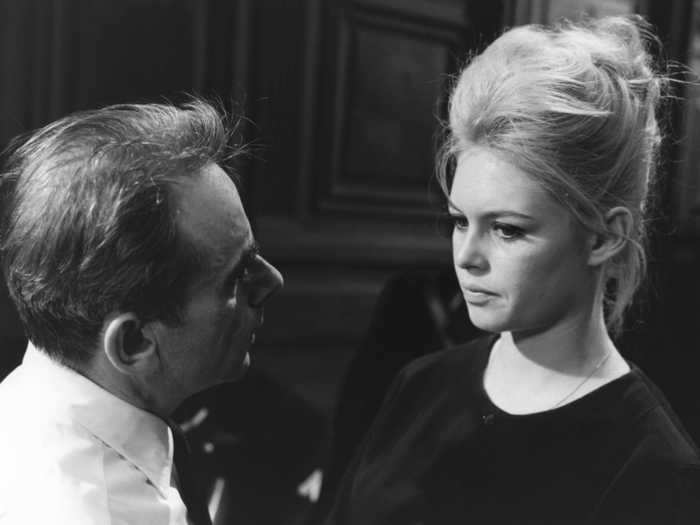
French director Henri-Georges Clouzot was well-known in the horror genre during the '50s and '60s. While filming "La Vérité" ("The Truth") in 1960, he wanted his lead actress, Brigitte Bardot, to realistically fall asleep and drool for a scene.
So he apparently gave the actress sleeping pills, claiming that they were painkillers, according to The Guardian. Bardot took too many and ended up having to get her stomach pumped as a result.
After the fact, Bardot called Clouzot "a negative being, forever at odds with himself and the world around him."
This was just one of many incidents for Clouzot, however, as he reportedly slapped Suzy Delair while filming "Quai des Orfèvres" in 1947.
Stanley Kubrick reportedly terrorized Shelley Duvall in order to make "The Shining."
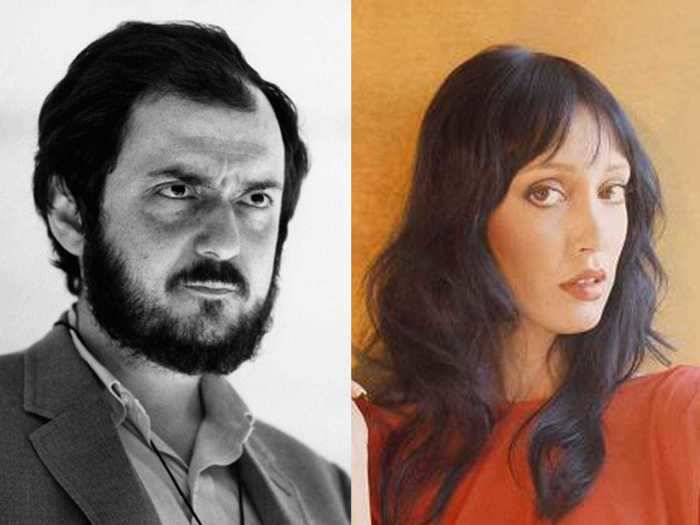
"The Shining" is one of the most iconic films in American history — and the feud between Shelley Duvall and Stanley Kubrick is just as infamous.
Kubrick's masterpiece took 13 months to shoot, and every bit of it seems to have been torture for lead actress Shelley Duvall. A perfectionist, Kubrick apparently nitpicked her performance, re-shooting scenes and lines and reaming her in front of the crew for missing cues. To get real desperation out of Duvall, he apparently filmed one emotionally taxing scene 127 times.
After "The Shining" was released in 1980, Duvall said to critic Roger Ebert, "Going through day after day of excruciating work. Almost unbearable ... in my character I had to cry 12 hours a day, all day long, the last nine months straight, five or six days a week."
Tony Kaye didn't want Edward Norton and the studio to edit "American History X."
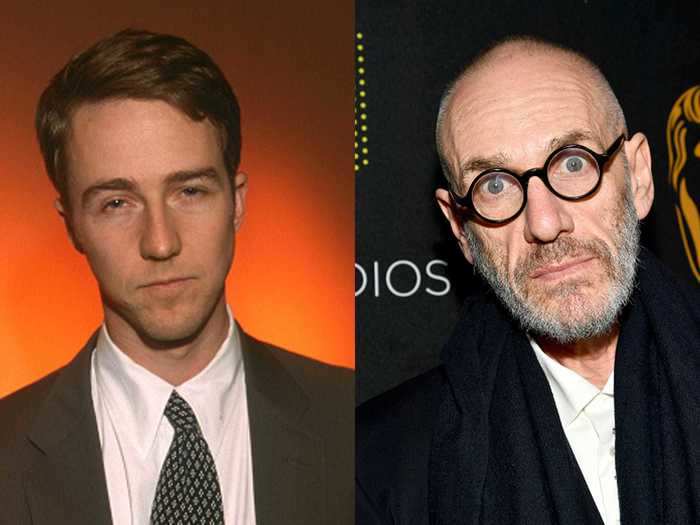
"American History X" got off to a rough start: Controversial British director Tony Kaye didn't even want to hire Edward Norton to play the lead, but said he "couldn't find anyone better."
Norton and Kaye began to clash when the film was being edited. Kaye's 95-minute cut was not favorably received by New Line Cinema and Norton, who both began to offer Kaye some notes — and he did not take the suggestions well.
Kaye was so furious with Norton he punched a wall and broke his hand, and he threatened to replace his director's credit with the name Humpty Dumpty. Kaye has since referred to Norton as "a narcissistic dilettante."
Megan Fox compared "Transformers" director Michael Bay to Hitler.
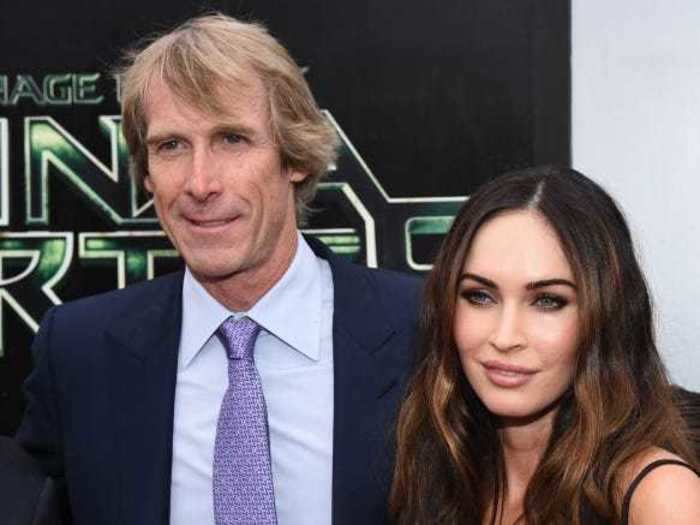
Michael Bay and Megan Fox have openly slammed each other in the press, and the animosity seems to have started on the set of "Transformers" in 2007.
Fox said of her director, "[Michael] wants to create this insane, infamous mad-man reputation. He wants to be like Hitler on his sets, and he is ... He has no social skills at all. It's endearing to watch him. He's so vulnerable and fragile in real life and then on set, he's a tyrant."
Members of Bay's "Transformers" crew retaliated by writing an open letter that called Fox "the queen of talking trailer trash and posing like a porn star," according to the Daily Beast. Fox was eventually fired from the "Transformers" franchise and replaced with Rosie Huntington-Whiteley.
Reportedly, the two have since buried the hatchet, and Fox starred in Bay's "Teenage Mutant Ninja Turtles" film in 2014.
Alfred Hitchcock reportedly made unwanted sexual advances towards Tippi Hedren during the filming of "The Birds" and "Marnie."
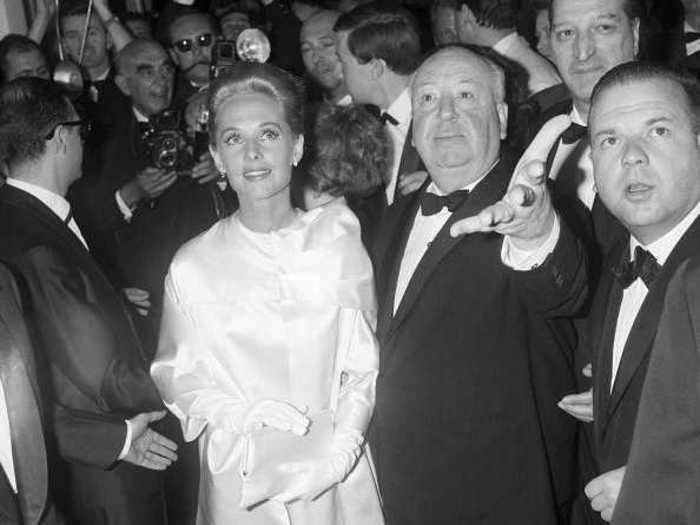
Tippi Hedren ascended to stardom after scoring lead roles in Hitchcock's "The Birds" and "Marnie." But Hedren later revealed that the director made unwanted sexual advances on her throughout the filming of "The Birds" in 1963 — and threatened her career if she didn't comply.
Hedren repeatedly rebuffed his advances. She told Variety in 2017, "When he told me that he would ruin me, I just told him do what he had to do. I went out of the door and slammed it so hard that I looked back to see if it was still on its hinges."
The inappropriate behavior allegedly continued onto the set of "Marnie." At one point, Hitchcock and Hedren were in the back of a limousine and she says he lunged at her, begging her to kiss him. "It was absolutely awful, and as soon as the movie 'Marnie' was over, I was out of there," Hedren said. "That was the end of the Hitchcock relationship."
Katherine Heigl slammed her "Knocked Up" director Judd Apatow, calling the film "sexist."
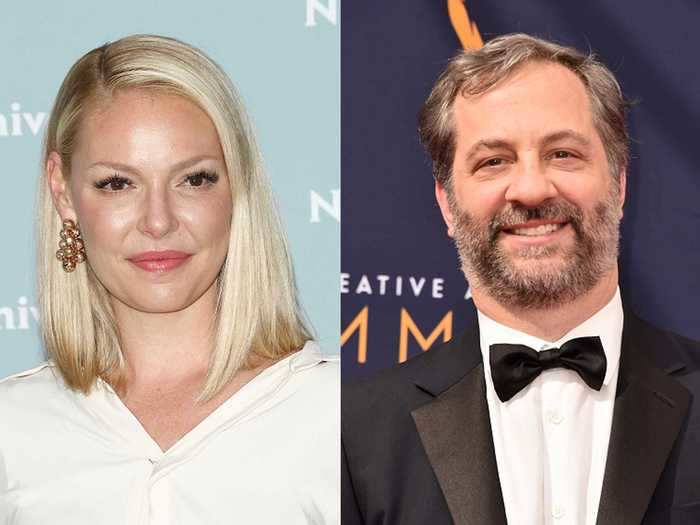
In a now-infamous Vanity Fair interview from 2008, Katherine Heigl slammed her "Knocked Up" director Judd Apatow, calling the movie "a little sexist."
Heigl went on to express discontent with her character's personality in the film. "It paints the women as shrews, as humorless and uptight," she told the magazine. "It paints the men as lovable, goofy, fun-loving guys."
Both Apatow and Heigl's co-star, Seth Rogen, did not take this critique well. Apatow commented on Heigl's lack of an apology on The Howard Stern Show, saying, "[You'd think] at some point I'll get a call saying, 'Sorry, I was tired ...' and then the call never comes."
The incident put a damper on Heigl's career, leading her to apologize (via the press) in 2016. But as of 2017, Apatow told Vulture he still hasn't spoken to Heigl since the Vanity Fair interview came out a decade ago.
Bill Murray and director Harold Ramis had beef that spanned decades, after years of frequently working together.
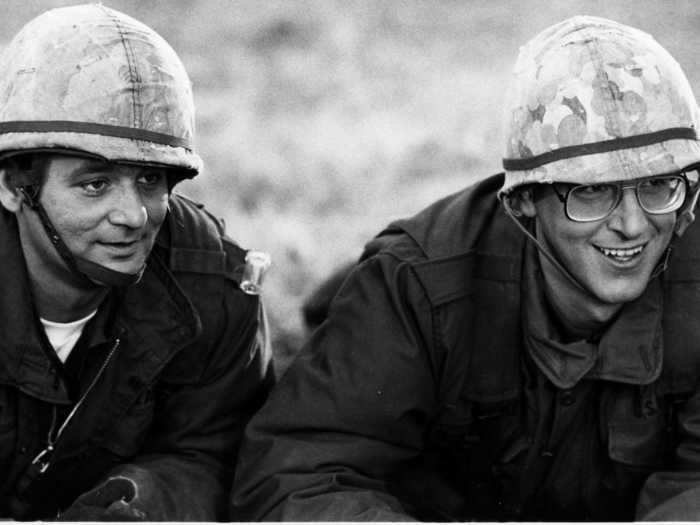
Murray and Ramis were longtime friends and "Ghostbusters" co-stars, but they had a bitter falling out on the set of Ramis' 1993 film "Groundhog Day."
Murray was the star of the film, and, according to Ramis' daughter, his behavior became increasingly erratic while shooting — allegedly, he was repeatedly late to set and threw many a tantrum. The issue came to a head when Ramis, at one point, is said to have grabbed Murray by the collar and shoved him against a wall.
Ramis' daughter told The Daily Mail, "Bill was going through a difficult time in his personal life, and he and my dad were not seeing eye to eye on the tone of the film ... Eventually, Bill just completely shut my dad out ... for the next 20-plus years."
Ramis became terminally ill in 2010, and it was then that Murray extended an olive branch, arriving at Ramis' house with a police escort and a dozen donuts. The two were friends until Ramis' death in 2014.
David O. Russell hollered obscenities at Lily Tomlin on the set of "I Heart Huckabees" in 2004.
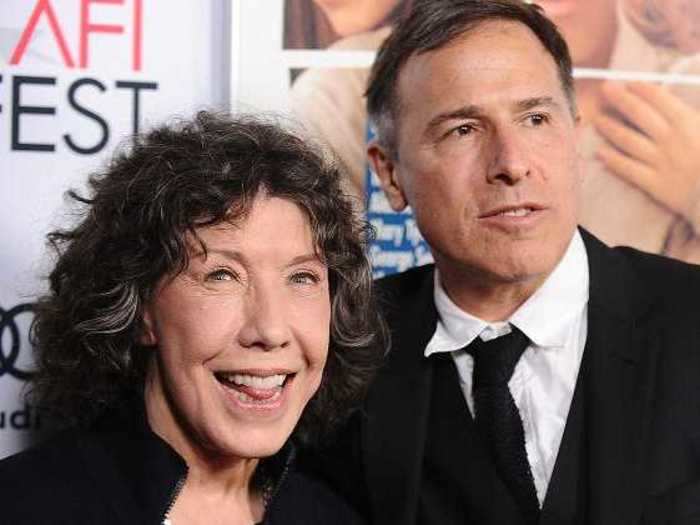
A video leaked a few years ago shows David O. Russell screaming at Lily Tomlin while filming 2004's "I Heart Huckabees."
The video is profanity-laden: After Tomlin complains to Russell about his constant re-writing of lines and scenes, he has a complete meltdown. Russell shoves and knocks items over on the set as crew members flee.
But the episode did not harm Russell and Tomlin's relationship for more than a few hours. She recently told The Hollywood Reporter, "We've overcome it. It dissipates and it's gone." The two have stated they would gladly work together again.
Klaus Kinski and Werner Herzog almost killed each other on the set of "Aguirre: The Wrath of God."
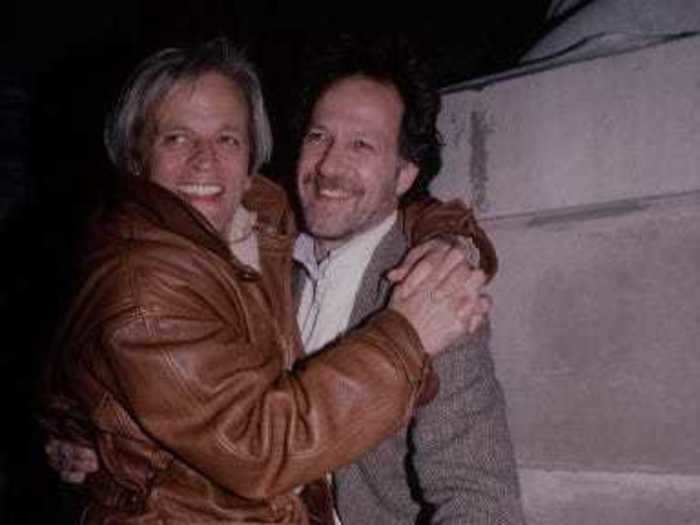
Klaus Kinski was known for being a difficult actor to work with, and this seemed to prove true for director Werner Herzog on the set of "Aguirre: The Wrath of God" in 1972.
Kinski and Herzog began to disagree about how Kinski should play his character, and Kinski became defiant. He reportedly threw wild tantrums on set and constantly threatened to quit the production. In one of the latter instances, Herzog is said to have held Kinski at gunpoint in order to make him stay.
The two went on to work together four more times, and Herzog made a documentary about their mercurial, decades-long friendship called "My Best Fiend" in 1999.
Björk accused "Dancer in the Dark" director Lars von Trier of sexual harassment, though he denies the claims.
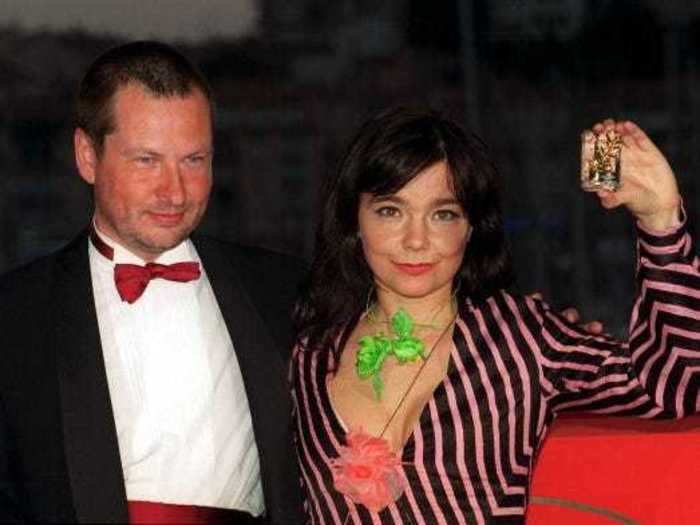
Both Björk and Lars von Trier won many awards and accolades for their 2000 indie film "Dancer in the Dark." But in light of the #MeToo movement, Björk claimed in 2017 that von Trier made unwanted sexual advances at her during filming.
In a series of Facebook posts, Björk alleged that von Trier made "unwanted whispered sexual offers from him with graphic descriptions," and he threatened to "climb from his room's balcony in the middle of the night with a clear sexual intention."
Von Trier has denied the claims, saying that sexual harassment was "not the case. But that we were definitely not friends, that's a fact."
After working with Keira Knightley on "Begin Again," director John Carney said he'd "never work with supermodels again."
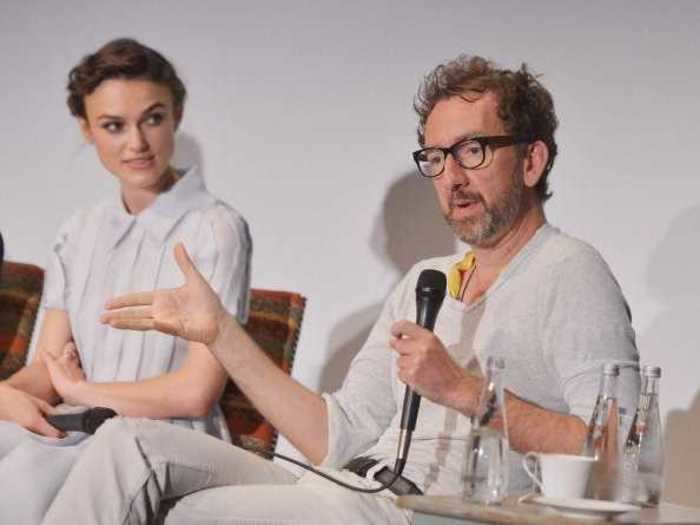
John Carney blasted Keira Knightley in an interview with The Independent after "Begin Again" was released, calling her a "supermodel" who was unable to capture the essence of her musician character.
Carney said, "Keira's thing is to hide who you are and I don't think you can be an actor and do that ... being a film actor requires a certain level of honesty and self-analysis that I don't think she's ready for yet, and I certainly don't think she was ready for on that film."
Directors rallied to defend the Oscar-nominated actress on Twitter, calling her "utterly spectacular" and "a joy" to work with. Carney issued an apology on Twitter in 2016, saying, "Keira was nothing but professional and dedicated during that film and she contributed hugely to its success."
In 2019, Knightley revealed in an interview with the Irish Times that Carney had apologized to her privately, and she had accepted the apology.
"It was a very difficult shoot. We didn't get on. It's just a thing that happens sometimes and I say that with no blame. It takes two to tango," she said. "I think we can both be very proud of ourselves for the film that we made because it's difficult when a lead actor and director don't get on. And I don't think you could tell that from watching the film."
Burt Reynolds thought Paul Thomas Anderson was "full of himself," and never worked with him again.
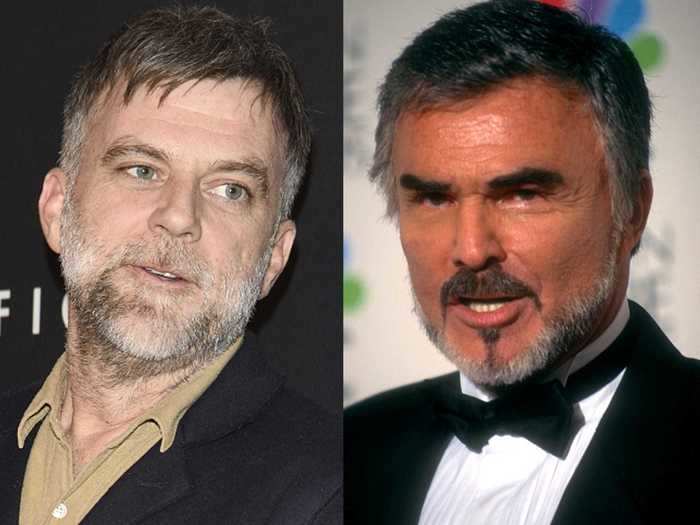
Paul Thomas Anderson hit it big with his critically adored second film, "Boogie Nights," in 1997. But Burt Reynolds, who won a Golden Globe for his performance, never saw the film.
Reynolds told GQ that he and Anderson clashed on set, personality-wise. He found Anderson to be too pleased with his own ability, saying they butted heads "mostly because he was young and full of himself. Every shot we did, it was like the first time [that shot had ever been done]."
Anderson extended an olive branch by offering Reynolds a part in his next film, "Magnolia," but Reynolds infamously declined the offer by saying, "I'd done my picture with Paul Thomas Anderson, that was enough for me."
Adrian Lyne reportedly played mind games on the set of "9 1/2 Weeks" in order to get an "authentic" performance out of Kim Basinger.
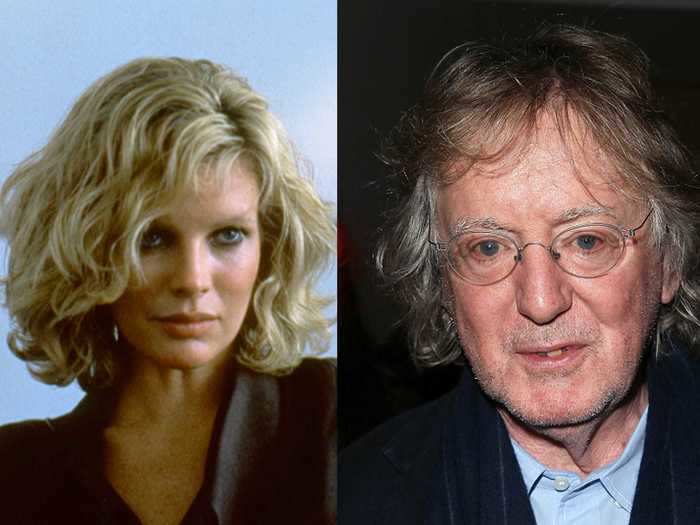
Kim Basinger spoke to The New York Times about what a grueling experience it was shooting the erotic drama "9 1/2 Weeks" in 1986.
Basinger was reportedly bullied by director Adrian Lyne, who also convinced co-star Mickey Rourke to completely ignore Basinger off-camera in order to add to the duo's intensity on-screen. Lyne said to the Times, "In order for her to be angry I would rage at her and she would rage back at me."
It wasn't until after "9 1/2 Weeks" was released that Basinger realized the level of manipulation that was happening on set. She reflected, "Mickey was egging me on — I hated him sometimes. I got confused. I didn't know who I was after a while. My husband and I had a bad time during this movie."
Even though Basinger said there were times she was ready to quit the movie, she holds firm that the experience — and the final product — were worthwhile.
Director Bernardo Bertolucci demeaned Maria Schneider on the set of "Last Tango in Paris."
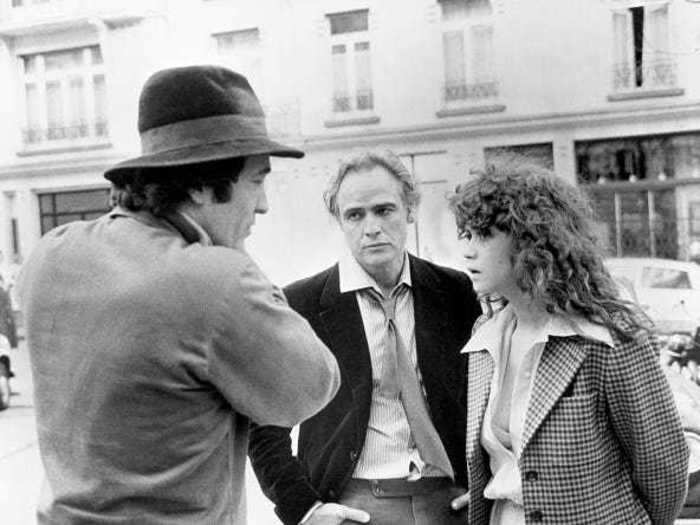
Though the scene depicting the rape of Maria Schneider's character was in the script for "Last Tango in Paris," director Bernardo Bertolucci created a disturbing last-minute addendum.
Bertolucci and actor Marlon Brando had the idea of using a stick of butter as lubricant for the scene, but they apparently didn't warn Schneider beforehand because Bertolucci wanted "her reaction as a girl, not as an actress."
Shortly before her death in 2011, Schneider told the Daily Mail that the scene felt real to her. "Marlon said to me: 'Maria, don't worry, it's just a movie,' but during the scene, even though what Marlon was doing wasn't real, I was crying real tears," she said.
Bertolucci said Schneider hated him for years after the film. "Last Tango In Paris" received renewed media attention in 2016 before the #MeToo movement, as celebrities — both actors and actresses — rallied to defend Schneider on Twitter.
READ MORE ARTICLES ON
Popular Right Now
Popular Keywords
Advertisement